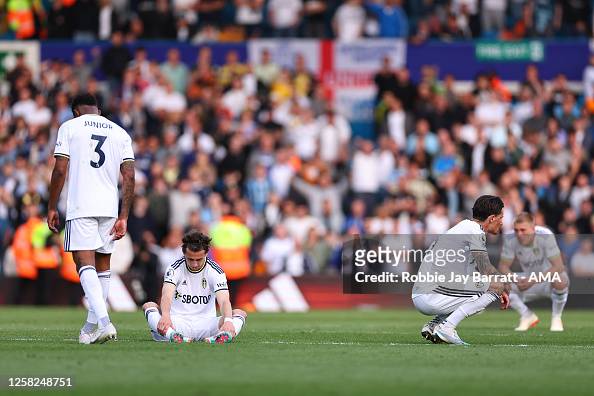Parachute payments were introduced by the Premier League in the 2006/07 season as a method of limiting the financial damage a relegated team may endure when dropping down to the Championship. The Premier League will pay the parachute payments as instalments over a period of three years. The first payment is 55% of the broadcasting revenue which every club receives after the equal split. Additionally, the second season is 45% and then 20% in the third season after relegation.
According to the website Deloitte, the Premier League was the highest revenue generating league in the world at 4.4 billion euros, which was ahead of its closest rival Bundesliga by 2 billion euros in 2016. Being relegated from the Premier League will lead to an enormous drop off in broadcast revenue, so the relegated clubs’ business models may be unsustainable with inadequate funds. Therefore, parachute payments are paramount to relegated teams.
-
2019/20 Financial Analysis
Parachute Payment Table
Figure 1. The figures from their respective club accounts from Companies House in 2020
|
2019/20 (£M) |
Fulham |
Cardiff |
Huddersfield |
|
Turnover |
58 |
44 |
52 |
|
Parachute Payments |
42 |
42 |
42 |
|
Profit/(loss) before tax |
(49) |
(11) |
(8.2) |
In the 2019 Premier League season Fulham, Cardiff and Huddersfield were all relegated to the Championship. Based on the parachute payments scheme, the three relegated sides were all awarded £42 million to assist with inevitable financial loss. Parachute payments are such a large sum of money in compassion to the overall turnover of the club. Cardiff, for example, their parachute payments made up for 95% of their entire turnover for that season. Financially parachute payments create an economic advantage for relegated teams in comparison to teams already in the Championship.
Figure 2. The figures from their respective club accounts from Companies House in 2020
|
2019/20 (£M) |
Preston |
Blackburn |
QPR |
|
Turnover |
11 |
13.5 |
20 |
|
Profit/(loss) before tax |
(9) |
(21.9) |
0.0001 |
Preston, Blackburn and QPR all finished 14th, 15th and 19th respectively in the Championship in 2018/19. The turnover made by these clubs is around 20% of what the parachute payments clubs made in the same season. Highlighting the financial advantage that parachute payments give to the previous Premier League clubs. A greater turnover means clubs can afford to spend more money on transfers and gift players higher wages which can attract better footballers to help spearhead a challenge for promotion to the Premier League.
Ultimately, based on figure 2, parachute payments provide a greater financial advantage to the clubs which are relegated from the Premier League. Teams which are pursuing promotion to the Premier League are collateral damage because they do not have the finances to compete with these parachute payment-supported sides.
Due to parachute payment teams having greater financial backing after being relegated compared to other Championship teams, clubs may deem it necessary to invest more. Mid table clubs could be forced into spending a larger amount of money to bridge the gap to the teams who are battling away for promotion to the Premier League.
-
Unsustainable Wages?
Figure 3. Figures from their respective club account from Companies House in 2020
|
2019/20 (%) |
Preston |
Blackburn |
Reading |
|
Wages to Turnover |
157% |
189% |
187% |
Based on figure 3 we can see Reading who finished one place above the relegation zone, in 2018/19, are willing to spend almost double their turnover on wages to get promoted. Sheffield Hallam University created an investigation into parachute payments. Between 2017 and 2021 parachute payment football clubs were three times more likely to be promoted than teams which did not have this extra financial boost. This study proved parachute payments made the Championship more favorable to teams who had been relegated from the Premier League.
Moreover, to reach the promised land of the Premier League, teams like Reading are forced to inject more money into the club to compete with teams like Fulham. Dr Daniel Plumley and Dr Rob Wilson believe parachute payments are creating unsustainable losses within clubs, which is what we have seen at Derby County, Sheffield Wednesday and Reading. Financial expert Kieran Maguire calls the Championship the most “problematic” division in English football. Clubs are consistently losing money and have very little motivation to reduce their losses.
Furthermore, parachute payments from the Premier League have created a spending pandemic among Championship clubs bidding to close the gap to the top of the league. Additional funds received by the relegated teams provides them a foundation for promotion back to the Premier League which none of the other clubs receive.
-
Rick Parry's View
Parachute payments are diluting the competitiveness of the Championship according to English Football League chairman Rick Parry. Parry is adamant there needs to be a review of the current distribution of parachute and solidarity payments. Moreover, the financial gap between the Premier League and Championship is enormous. The last full season just before COVID-19 struck, 2018-19, bottom of the league Huddersfield earned a mouth-watering £96 million. In comparison, Norwich City finished top of the Championship but only earned £8 million. Despite Norwich City replacing Huddersfield there was an £88 million gap generated according to journalist Andy Hampson.
Therefore, Huddersfield, with the £96 million accumulated will have an economic advantage over the other Championship clubs’ next season. This is before they receive parachute payments from the Premier League which will further dilute the competitiveness. Rick Parry proposes a new model which would see the abolishment of parachute payments. The proposal by Parry is to halve the gap between the bottom of the Premier League and the top of the Championship. Although, there is very little chance that this would be backed by the Premier League. EFL chairman Rick Parry is consistent on the fact there needs to be an independent intervention by the Government if this is to pass.
Rick Parry’s’ aim is to make sure every EFL club is sustainable, meaning not 100% dependent on owner funding. Revenue needs to be redistributed fairly among all clubs and how they spend this money must be regulated. Adamant the Premier League has a duty to help bring sustainability to the football pyramid. An independent fan led review by Tracey Crouch in 2020, recommended 10-key changes to English football to focus on sustainability, distribution of wealth and a bid to stop rogue owners. Despite this, Rick Parry still believes another advancement to help the football pyramid is dissolving parachute payments.
Parachute payments are certainly providing a springboard for relegated clubs to promote themselves compared to other clubs. Restoring balance and competitiveness back to the Championship is paramount for Rick Parry and parachute payments are deemed an obstacle.
Overall, parachute payments are a sustainability tool for the Premier League to help clubs financially who will feel the backlash of relegation. Due to the money generated by the Premier League in broadcasting, the solidarity payments to relegated clubs are of much greater value to what most Championships clubs generate. Therefore, parachute payment clubs are giving a significant boost to the rest of the Championship before the season has even started. This injection of money can be used to attract superior players and pay higher wages, thus making it harder for the remaining clubs to be promoted to the Premier League.










































